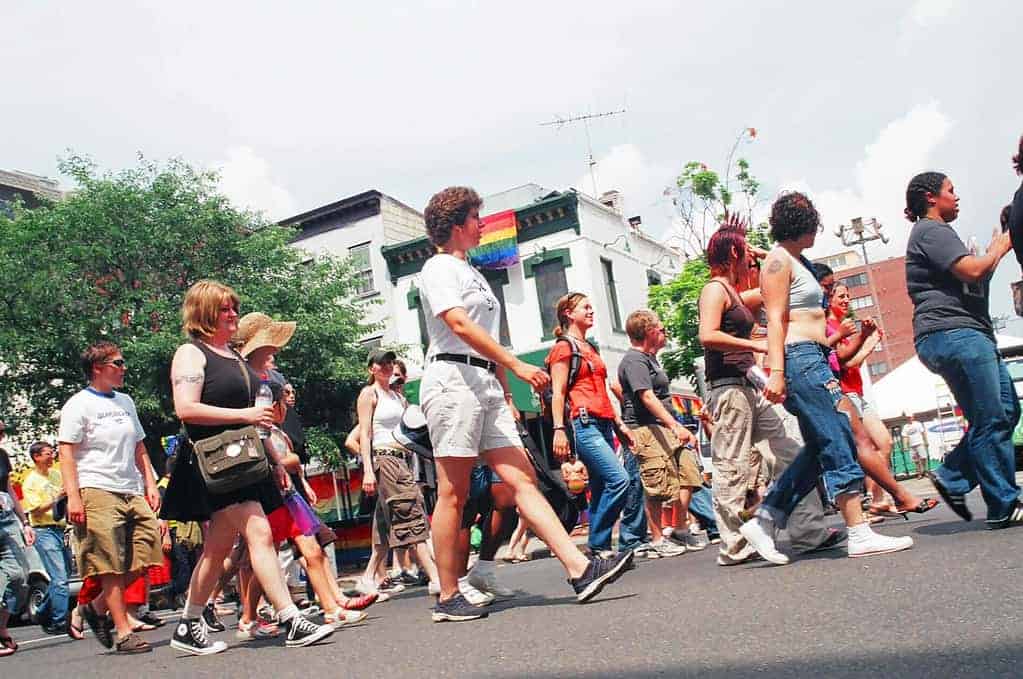On the eve of Washington, D.C., and the National Capital Region’s 2019 Pride festivities, 1,000 self-described dykes took to the streets on June 7 to protest displacement in the city, bringing the Dyke March back to D.C. for the first time in 12 years. The original march took place in April 1993 with 20,000 people who marched from Dupont Circle to the White House in protest of anti-gay legislation. This year’s organizers worked to create an inclusive, radical space for some of the most marginalized members of the LGBTQ community.
In choosing displacement as their theme, the organizers took aim at a problem that has devastated D.C.’s communities of color. Citing the National Community Reinvestment Coalition’s (NCRC) 2019 national report on gentrification and cultural displacement, organizers highlighted D.C.’s status as the most intensely gentrified cities in the country (by percentage of gentrified neighborhoods). In D.C. alone, 20,000 black residents were displaced over the 20-year study period. LGBTQ people of color are especially vulnerable to the forces reshaping the city, due to lower average incomes and higher levels of discrimination, as compared to non-LGBTQ individuals.
Affordable housing and cultural identity are undoubtedly queer issues. The Dyke March recognized this and partnered with local D.C. based groups that are already doing incredible work to combat displacement in the city. The organizers recognized these groups on stage at the post-march rally, raised money for them throughout the entire planning process and will continue to support their work throughout the rest of the year.
The D.C. Dyke March’s focus on gentrification and displacement was a reminder that LGBTQ people are also victims of displacement. Combating D.C.’s displacement problem has been and will continue to be a long and difficult fight. NCRC stands with its members in D.C. and across the nation who are prioritizing the needs of the underserved and advancing equitable development policies that support vibrantly diverse, inclusive and sustainable local economies.
View this post on Instagram
View this post on Instagram
Top Image by Elvert Barnes from Flickr



